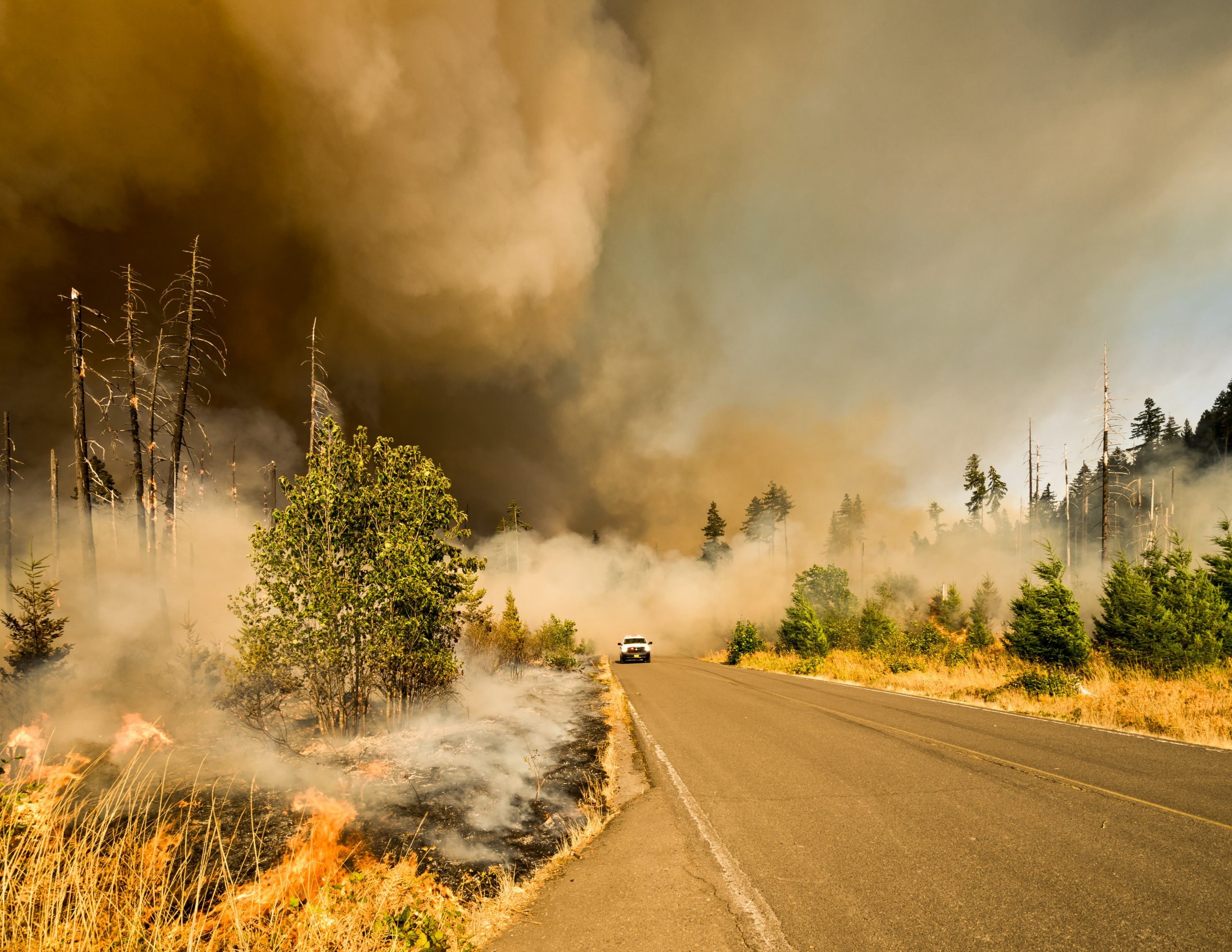It’s summertime, and that means that the heat levels are rapidly rising in many areas of the Pacific Northwest. The sunshine and warmth may be a welcome change from the consistent rainfall in June, but with the wildfires of 2020 on many Oregonian’s minds, it’s a good idea to keep an eye on your local air quality and understand how it can affect yourself and your loved ones.
As many individuals may remember from the summer of 2020, the air quality from the wildfires created a domino effect of negative health effects. Although it may be obvious, when the air pollution levels rise due to wildfires, it has a drastic effect on air quality around you. This is something to keep in mind as the danger of wildfires increases, along with the size and intensity of wildfires as well.
As wildfires become more widespread, the effect that they have on the climate creates a vicious cycle—wildfires tend to release large amounts of different types of carbon into the ozone, which can affect the levels of radiation that enter through the clouds and make the climate consistently heat up more and more through the years. They also release a substantial amount of both volatile and semi-volatile organic materials that form particulate matter in the air that can enter individuals’ respiratory systems.
Some of the health effects that were reported from previous wildfire seasons include: bronchitis, eye and respiratory tract irritation, exacerbation of asthma and heart failure, reduced lung capacity and function, and even premature death. The demographics who were affected the most were young children, pregnant women, people with heart/lung disease or diabetes, and elderly individuals. Some hospitals in the area reported that there were drastic increases to their facilities during this time by those exposed to smoke.
Sensitivity to smoke can vary in different people, but that doesn’t mean that some can handle wildfires well compared to others. Everybody experiences negative health consequences due to wildfires, and the fine particulates that are emitted from wildfires and enter respiratory systems are not to be taken lightly. If you’re looking for new ways to protect yourself, then here are some tips that you can follow:
- Restock your pantry with at least a week’s worth of nonperishable foods that also do not require cooking, as certain types of cooking such as frying can increase your indoor pollution levels.
- Have a large supply of masks on hand, particularly N-95 masks if possible.
- Consider buying an air purifier for your house (multiple even, if possible) so that you can actively remove some of the air particles from outside.
- Lastly, speak with your doctor before there is a threat of wildfires so that you can create an appropriate plan for yourself if you have a preexisting condition such as heart and lung problems.
Make sure to check this local air quality tracker often throughout the rest of the summertime.


